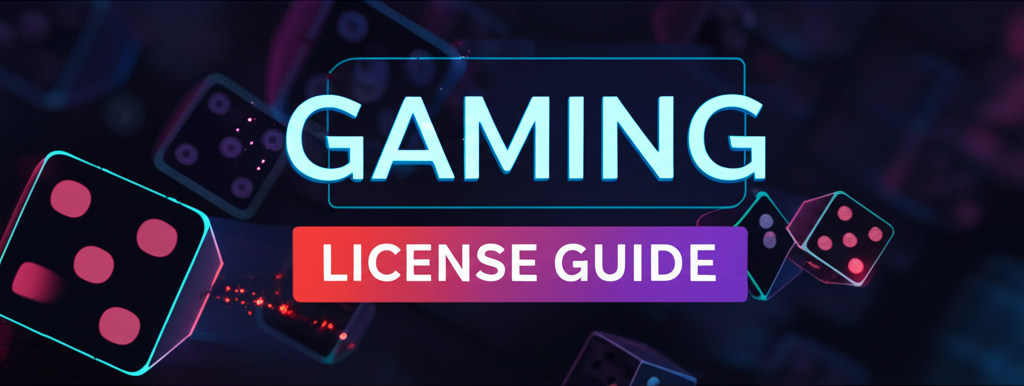
Complete Guide to Gaming License Applications in 2024

Michael Rodriguez
Casino Licensing Director
Navigate the complex world of gaming license applications with our comprehensive guide covering requirements, timelines, and success strategies for all major jurisdictions.
# Complete Guide to Gaming License Applications in 2024
The gaming industry continues to evolve rapidly, with new jurisdictions opening up and existing ones updating their regulatory frameworks. Whether you're looking to enter the casino industry as an individual or represent a gaming organization, understanding the licensing process is crucial for success.
Understanding Gaming License Types
Individual Licenses
- • Gaming Employee License: Required for most casino floor positions
- • Key Employee License: For management and supervisory roles
- • Vendor License: For suppliers and service providers
- • Manufacturer License: For gaming equipment producers
Entity Licenses
- • Casino Operating License: For casino operators
- • Sports Betting License: For sportsbook operations
- • Online Gaming License: For digital gaming platforms
- • Supplier License: For gaming service providers
Major Jurisdictions and Requirements
Nevada Gaming Control Board
Nevada remains the gold standard for gaming regulation. Key requirements include:
- • Background Investigation: Comprehensive review of personal, financial, and business history
- • Financial Suitability: Demonstration of adequate funding and financial stability
- • Character Assessment: Evaluation of integrity and reputation
- • Experience Requirements: Relevant gaming industry experience for key positions
Timeline: 6-18 months depending on license type
Costs: $5,000 - $500,000+ depending on scope
New Jersey Division of Gaming Enforcement
New Jersey offers both land-based and online gaming opportunities:
- • Residency Requirements: Some positions require state residency
- • Financial Disclosure: Detailed financial statements and tax returns
- • Criminal Background Check: FBI and state-level investigations
- • Business Plan Review: Comprehensive operational plans required
Timeline: 4-12 months
Costs: $2,500 - $200,000+
Pennsylvania Gaming Control Board
Pennsylvania's expanding gaming market includes:
- • Qualification Standards: Similar to Nevada with state-specific requirements
- • Local Community Impact: Assessment of local economic benefits
- • Diversity Requirements: Consideration of minority and women-owned businesses
- • Problem Gambling Measures: Mandatory responsible gaming programs
Application Process Step-by-Step
Phase 1: Pre-Application (1-3 months)
- 1. Jurisdiction Research: Understand specific state requirements
- 2. Legal Consultation: Engage gaming law specialists
- 3. Financial Preparation: Organize all financial documentation
- 4. Background Documentation: Compile personal and business history
Phase 2: Application Submission (1-2 months)
- 1. Complete Application Forms: Detailed personal and business information
- 2. Financial Statements: Audited financials and funding sources
- 3. Business Plans: Operational and marketing strategies
- 4. Supporting Documentation: Contracts, agreements, and certifications
Phase 3: Investigation Period (3-12 months)
- 1. Background Investigation: Comprehensive review by regulatory staff
- 2. Financial Analysis: Evaluation of funding sources and stability
- 3. Interviews: Meetings with applicants and key personnel
- 4. Site Inspections: Review of proposed or existing facilities
Phase 4: Hearing and Decision (1-3 months)
- 1. Public Hearing: Presentation to gaming commission
- 2. Community Input: Public comment period
- 3. Final Review: Commission deliberation
- 4. License Issuance: Approval and license delivery
Common Pitfalls and How to Avoid Them
Incomplete Documentation
Problem: Missing or inadequate supporting documents
Solution: Work with experienced gaming attorneys and maintain detailed checklists
Financial Irregularities
Problem: Unexplained funding sources or financial inconsistencies
Solution: Engage qualified accountants and maintain transparent financial records
Character Issues
Problem: Undisclosed criminal history or business associations
Solution: Full disclosure and legal representation for any potential issues
Inadequate Business Plans
Problem: Unrealistic projections or insufficient operational details
Solution: Professional business plan development with industry expertise
Success Strategies
1. Early Preparation
Start the licensing process 12-18 months before your target opening date. This allows adequate time for investigation and any required modifications.
2. Professional Team Assembly
Engage experienced professionals including:
- • Gaming attorneys
- • Certified public accountants
- • Industry consultants
- • Compliance specialists
3. Transparent Communication
Maintain open communication with regulatory staff throughout the process. Address questions promptly and provide additional information as requested.
4. Compliance Culture
Demonstrate commitment to regulatory compliance through policies, procedures, and training programs.
Ongoing Compliance Requirements
Annual Renewals
Most gaming licenses require annual renewal with updated financial information and compliance certifications.
Continuing Education
Many jurisdictions require ongoing education for licensed individuals to maintain current knowledge of regulations and best practices.
Reporting Obligations
Regular reporting of financial performance, incidents, and operational changes to regulatory authorities.
Audit Compliance
Submission to regular audits and inspections by gaming control boards.
Industry Trends and Future Outlook
Digital Integration
Online and mobile gaming continue to expand, requiring new licensing frameworks and compliance measures.
Sports Betting Growth
The expansion of legal sports betting creates new licensing opportunities across multiple states.
Responsible Gaming Focus
Increased emphasis on problem gambling prevention and player protection measures.
Technology Innovation
Blockchain, cryptocurrency, and AI technologies are creating new regulatory challenges and opportunities.
Conclusion
Gaming license applications require careful preparation, professional guidance, and patience. Success depends on thorough documentation, transparent communication, and demonstrated commitment to regulatory compliance.
The investment in proper licensing pays dividends through operational legitimacy, customer trust, and long-term business sustainability. As the industry continues to evolve, staying current with regulatory changes and maintaining strong compliance practices will be essential for continued success.
For personalized guidance on your gaming license application, consult with our experienced team of gaming industry professionals who have successfully navigated hundreds of licensing processes across multiple jurisdictions.